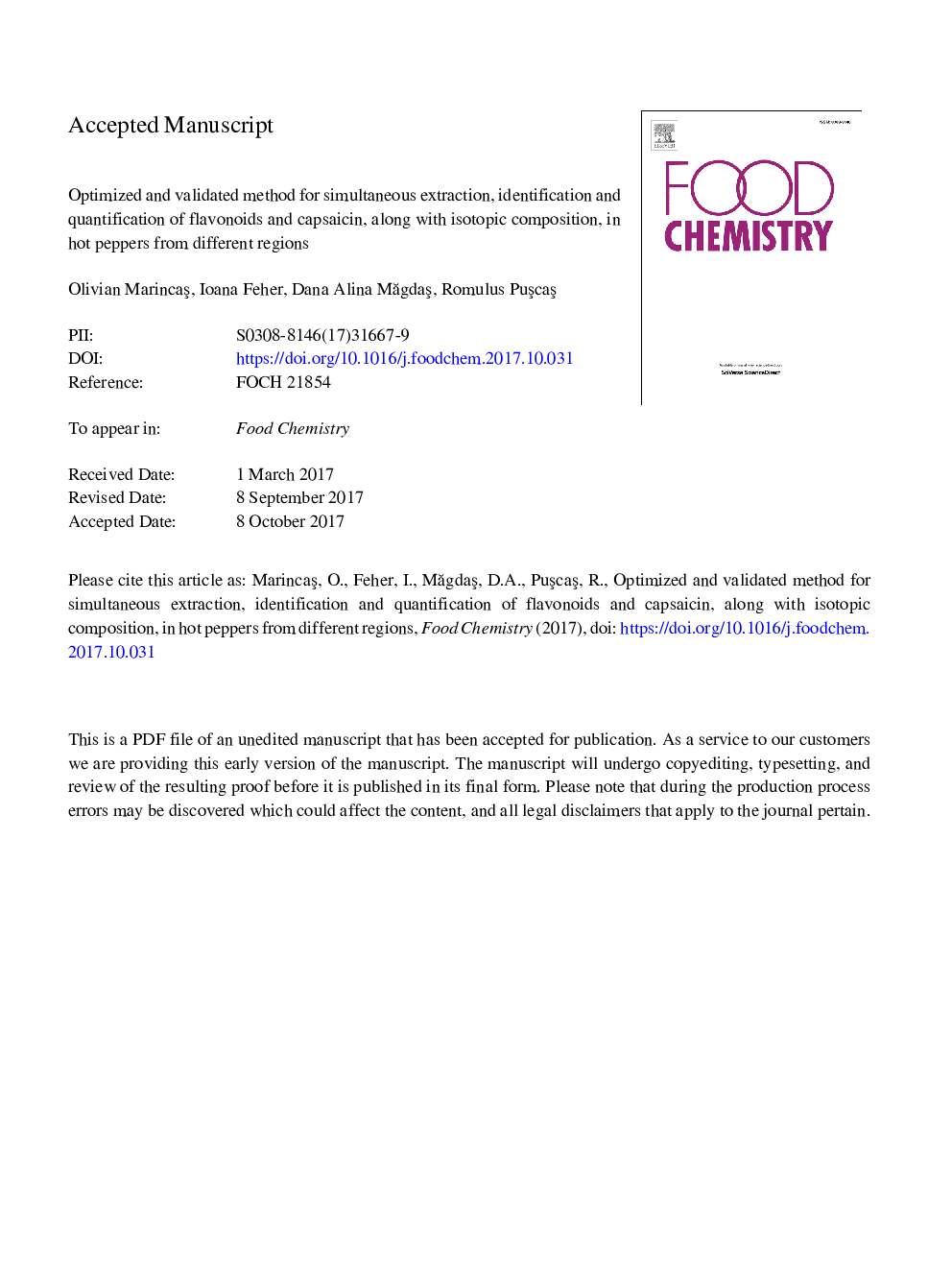| Article ID | Journal | Published Year | Pages | File Type |
|---|---|---|---|---|
| 7584467 | Food Chemistry | 2018 | 36 Pages |
Abstract
Nineteen hot pepper (Capsicum annuum L.) samples from five countries and twenty samples from Romanian producers were analyzed. Concentrations of flavonoids and capsaicin were simultaneously quantified for the first time with the method developed and validated in the present paper. δ13C, δ2H, and δ18O isotopic values were also measured. Maximum concentrations of studied compounds were detected in methanol extracts, after 12â¯h incubation of the samples assisted by ultrasound, at the 1:8 ratio of sample to solvent. The extraction recovery ranged from 90.60% to 115.05%. Capsaicin and four flavonoids were quantified in studied samples at different concentration ranges: capsaicin (28.23-2322.35â¯Âµg/g), vitexin (2.93-33.46â¯Âµg/g), isoquercetin (3.19-155.58â¯Âµg/g), kaempferol-3-glucoside (2.31-2462.25â¯Âµg/g) and myricetin (1.55-78.79â¯Âµg/g). The association between these analytical techniques and chemometric tools proved that kaempferol-3-glucoside is one of the strongest markers for country and maturity stage discrimination.
Related Topics
Physical Sciences and Engineering
Chemistry
Analytical Chemistry
Authors
Olivian MarincaÅ, Ioana Feher, Dana Alina Magdas, Romulus PuÅcaÅ,
